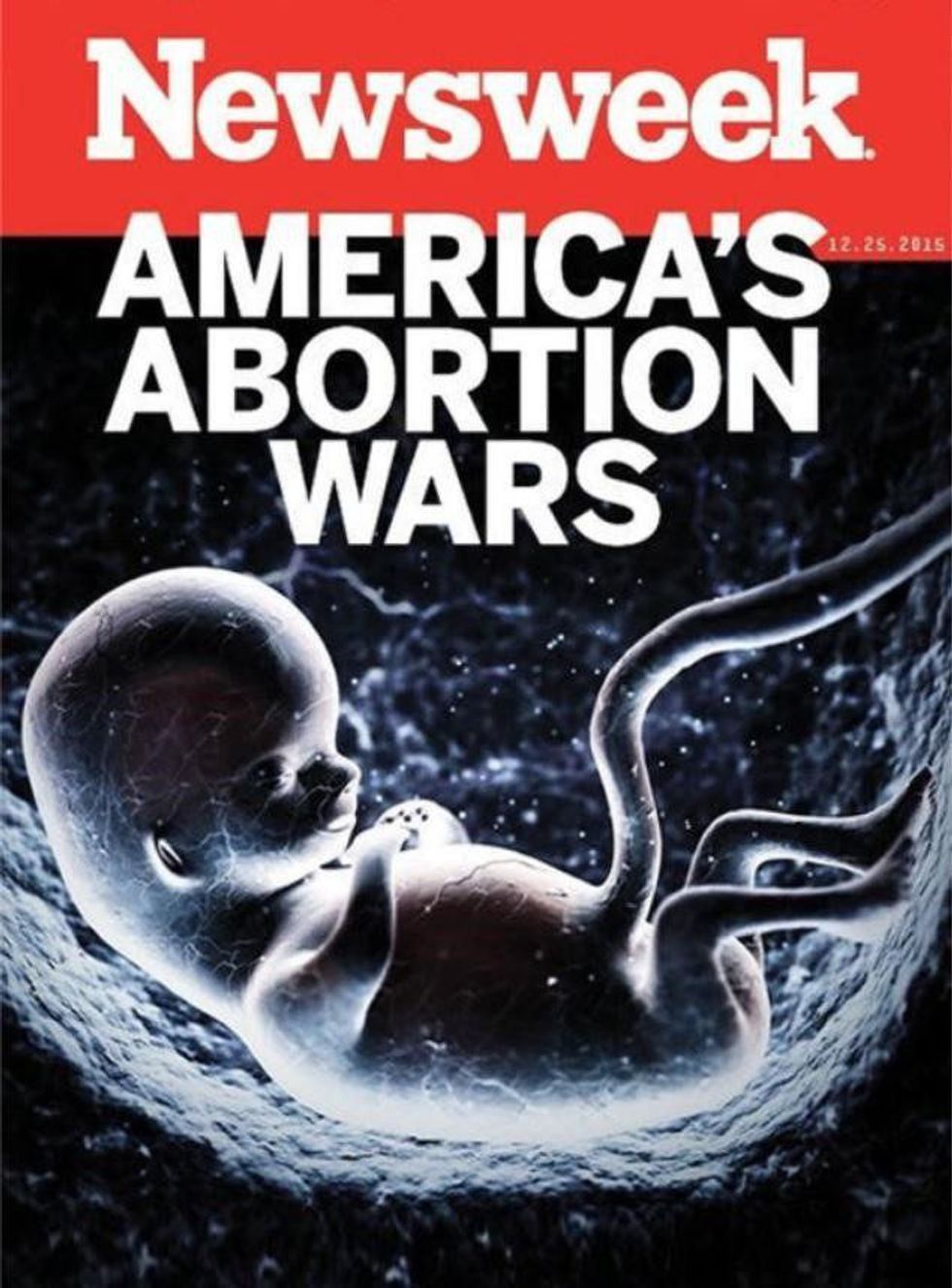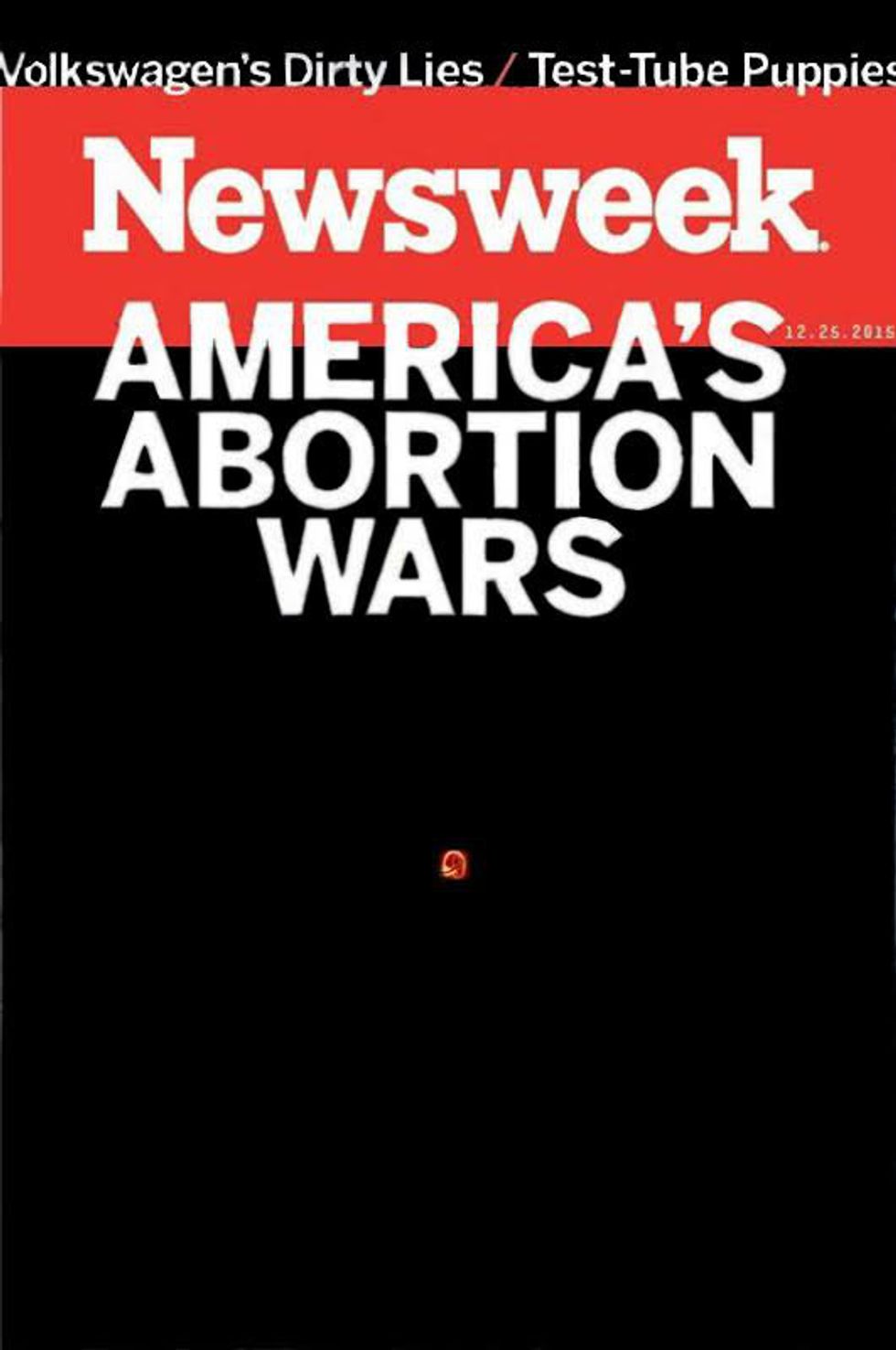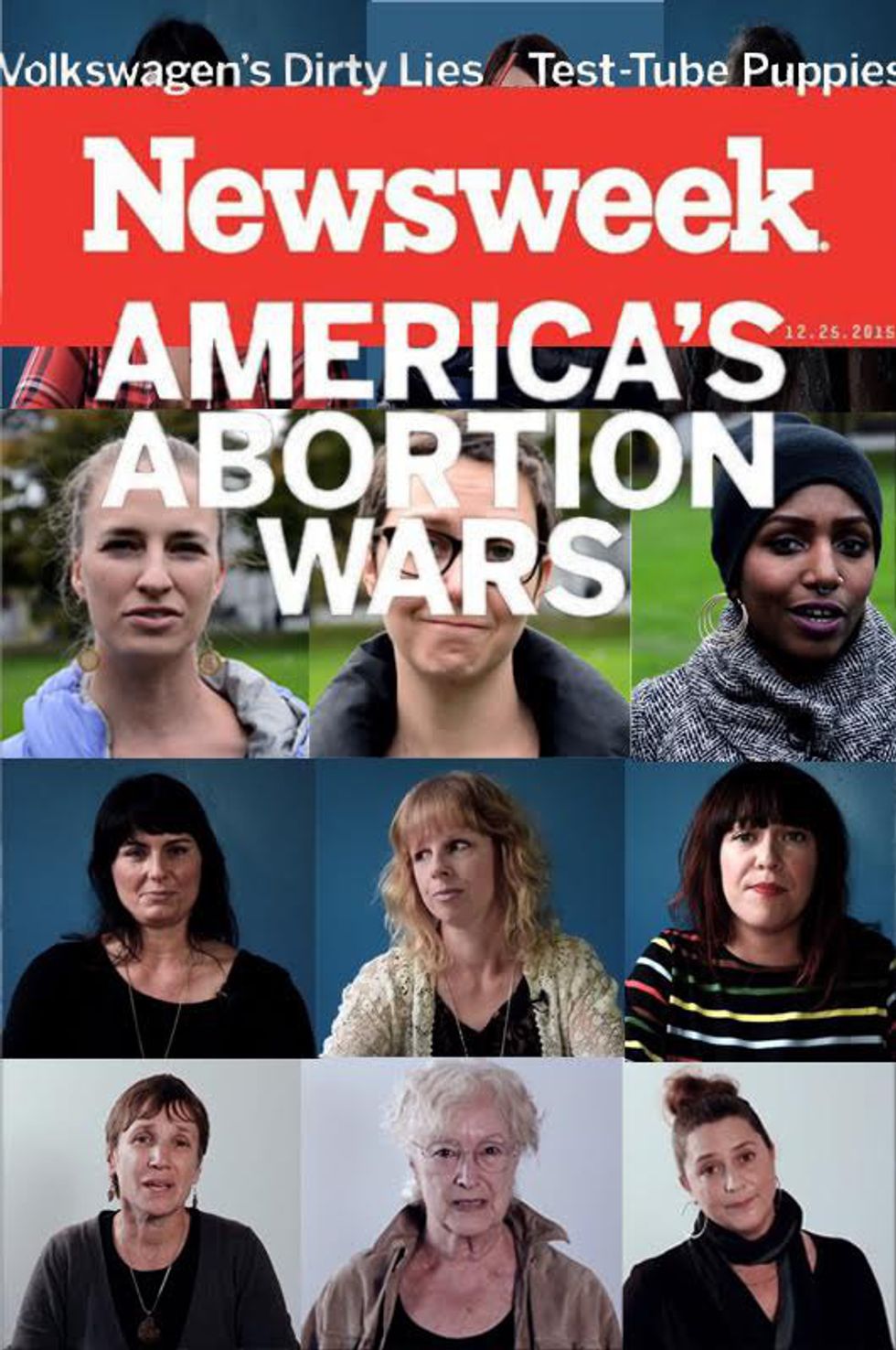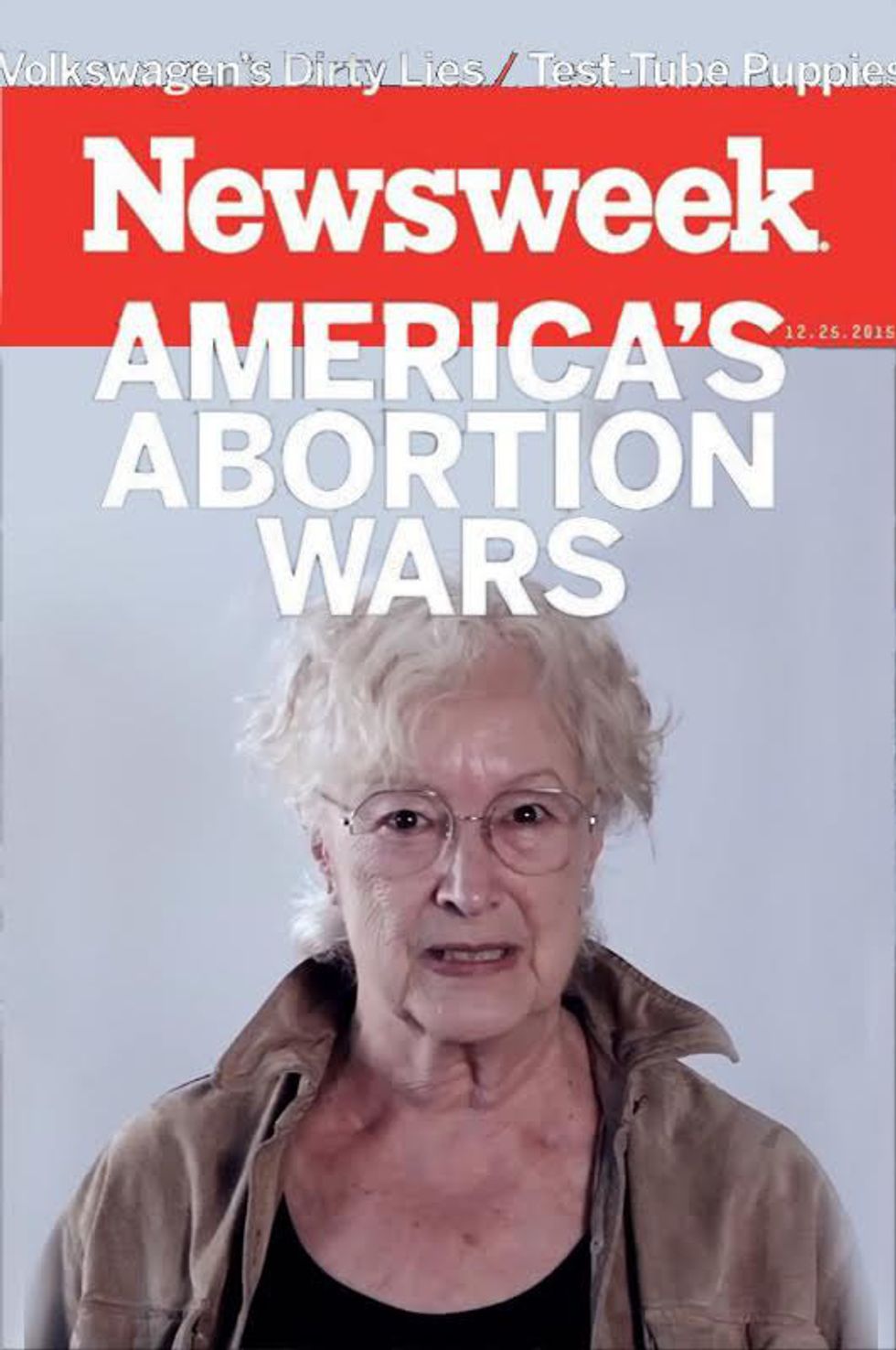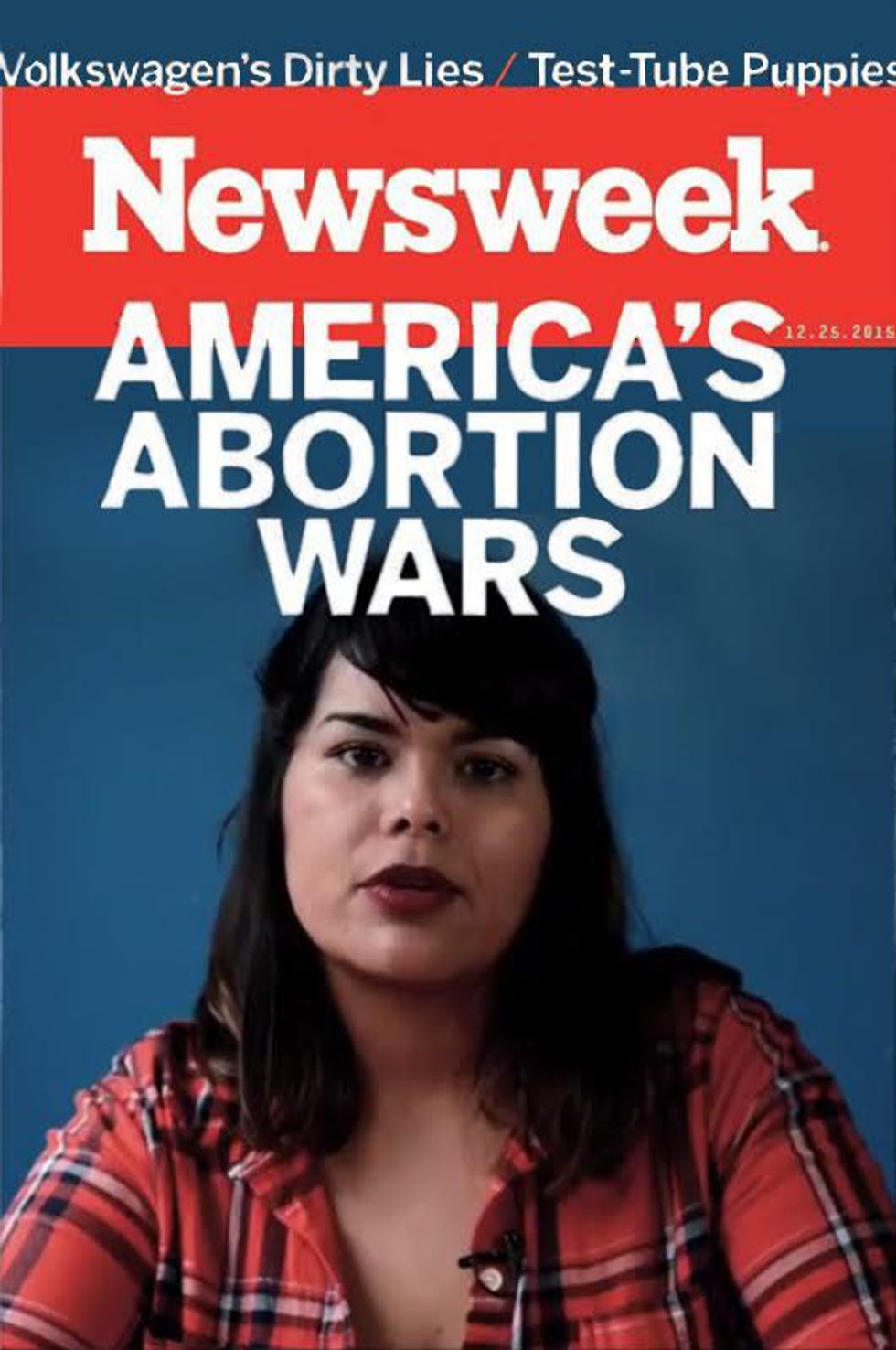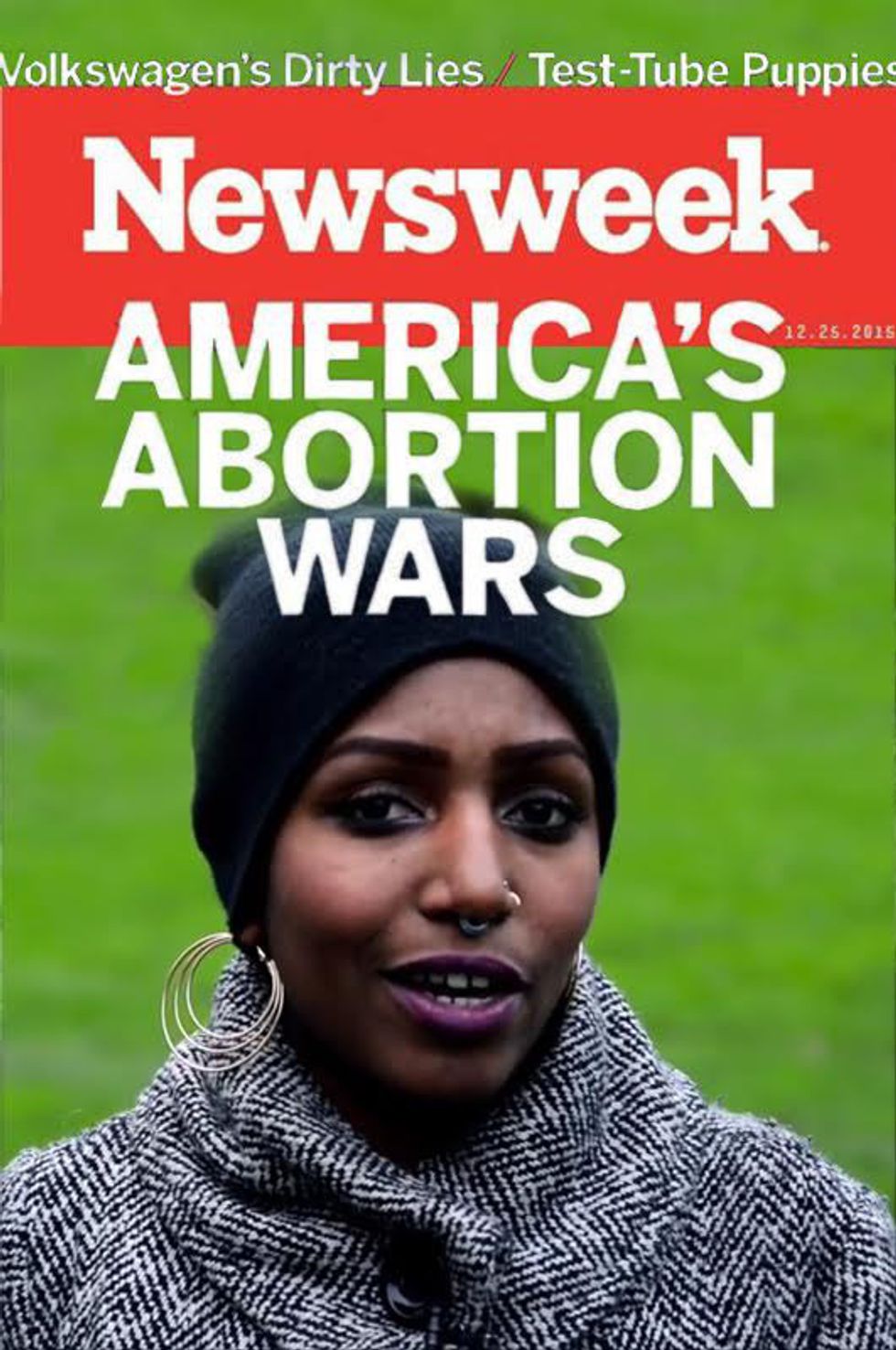Abortion, it appears, was the Big Loser of 2015. It’s been 42 years since Roe v. Wade made abortion legal in all 50 states. But in the decades since, while every other major civil rights movement has made steady progress, women’s reproductive rights have gone downhill. And this year took it to a whole new level. Following the release of deceptively edited Planned Parenthood videos, the pro-life movement has taken on a newfound fervor, and right-wing politicians were quick to catch on. State legislatures introduced hundreds of new laws to restrict abortions throughout the country, and even the national politicians in the 2016 presidential race are all clamoring to prove which of them is harshest on women’s reproductive right, often times at the cost of evidence or facts.
So what gives? Well as Elle Magazine argued in their recent article, the biggest issue is that the abortion conversation is being framed in all the wrong ways. In December, Newsweek’s took on the issue of “America’s Abortion War”, with a front cover to match. The cover photo is an adorable, yet unrealistically computer-enhanced, fetus, with no uterus-owner in sight. And thus is the issue with how we are discussing abortion in America.
The photo appears to be that of a 12-week fetus, except as Elle points out, "it looks about five times bigger than the translucent, two-inch-long fetuses you normally find at that stage." In fact, it "looks less like an actual pregnancy and more like an adorable computer-generated alien."
And what's more, a 12-week fetus is nowhere near representative of the majority of abortions. Ninety percent of all abortions happen within the first trimester, and in 2012 the amount that actually took place in that 12th week was less than four percent. The time period where the most abortions took place was actually 6 weeks or earlier at 35 percent. Meaning that if Newsweek were to focus the conversation on what is actually going on, their cover would look more like this.
But while we're correcting old mistakes, lets also make sure everything is set to an accurate scale. At 6 weeks, the above fetus would be about 1/5 of an inch long, so perhaps this cover would be more accurate.
While all of this may seem like silly semantics, how we talk about something dictates the actions we take. Misrepresentations and exaggerations such as Newsweek's are not isolated incidents. They are used to rile up crowds at anti-abortion rallies, add fire to the rhetoric of politicians, and even shoved in the faces of women going into healthcare clinics in the hopes of shaming them out of making what is already a difficult and deeply personal decision. If we're going to talk about abortion, lets do it right. And one of the first steps is making sure we're using accurate images and descriptions of the fetus's in question, not computer-generated scare tactics.
The second, and perhaps even more disturbing issue with the Newsweek cover, is that it is only of a fetus. Totally ignoring the other half of the equation: the person carrying it. As Elle puts it,
By focusing exclusively on fetuses, and promoting the imagery of endangered, persecuted 'babies' in the womb, people who oppose abortion are able to totally avoid talking about the ways in which their positions endanger and persecute the actual people carrying those fetuses around.
That's right. Pro-life advocates and politicians go on and on about the (disproven) suffering and lost potential of a clump of cells that may have one day become a person, but never once mention the suffering or lost potential of the women carrying them. What would this conversation looked like if we recognized that it isn't all about fetuses, but about women as well?
What if we focused the conversation on women like Amelia Bonow, founder of #shoutyourabortion, a movement that encourages women to come forward and not live in shame of their choices?
What if we focused the conversation on one of the woman who has actually had an abortion? Thanks to #shoutyourabortion, many of them have made it very clear that they are done hiding.
Does this change the message at all?
Abortion is one of the major debates of our time, and its starting to look like women are losing. If the tides are going to turn in any effective way, we as a nation are going to have work at shifting the conversation away from alarmist propaganda and towards an actual representation of what abortion actually is, and who it impacts.




